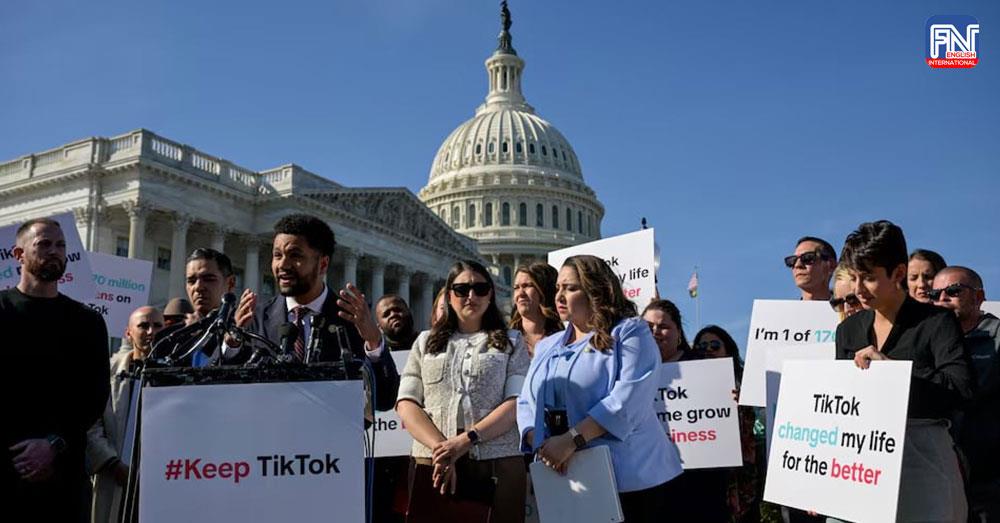WASHINGTON, Mar. 13 (Reuters) - The U.S. House of Representatives overwhelmingly passed a bill on Wednesday that would give TikTok's Chinese owner ByteDance about six months to divest the U.S. assets of the short-video app, or face a ban, in the greatest threat to the app since the Trump administration.
The bill passed 352-65 in a bipartisan vote, but it faces a more uncertain path in the Senate where some favor a different approach to regulating foreign-owned apps posing security concerns. Senate Majority Leader Chuck Schumer said the Senate will review the legislation.
The measure is the latest in a series of moves in Washington to respond to U.S. national security concerns about China, from connected vehicles to advanced artificial intelligence chips to cranes at U.S. ports.
"This is a critical national security issue. The Senate must take this up and pass it," No. 2 House Republican Steve Scalise said of TikTok on social media platform X. White House press secretary Karine Jean-Pierre added later that the Biden administration also wanted to see "the Senate take swift action."
The fate of TikTok, used by about 170 million Americans, has become a major issue in Washington where lawmakers have complained their offices have been flooded with calls from TikTok users who oppose the legislation.
TikTok CEO Shou Zi Chew, who a source briefed on the matter said is visiting Washington this week, said in a video posted after the vote the legislation if signed into law "will lead to a ban on TikTok in the United States... and would take billions of dollars out of the pockets of creators and small businesses."
He added the company will exercise its legal rights to prevent a ban. The bill gives the company 165 days to file a legal challenge after it is signed by President Joe Biden, who said last week he would do so.
The political climate in Washington, at a time when many politicians do not want to be seen as soft on China during an election year, increasingly favors the bill. Still, there are concerns about the impact of any ban on younger voters.
White House national security adviser Jake Sullivan on Tuesday asked "Do we want TikTok, as a platform, to be owned by an American company or owned by China? Do we want the data from TikTok - children's data, adults’ data - to be going, to be staying here in America or going to China?"
The Chinese Foreign Ministry has criticized the legislation, arguing "though the U.S. has never found any evidence of TikTok posing a threat to the U.S.'s national security, it has never stopped going after TikTok."

Photo from Reuters




